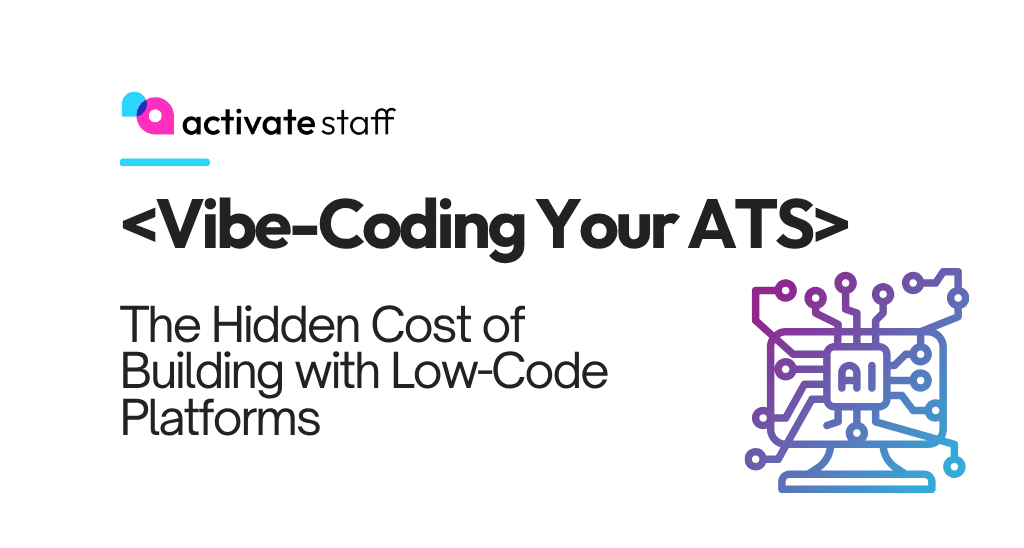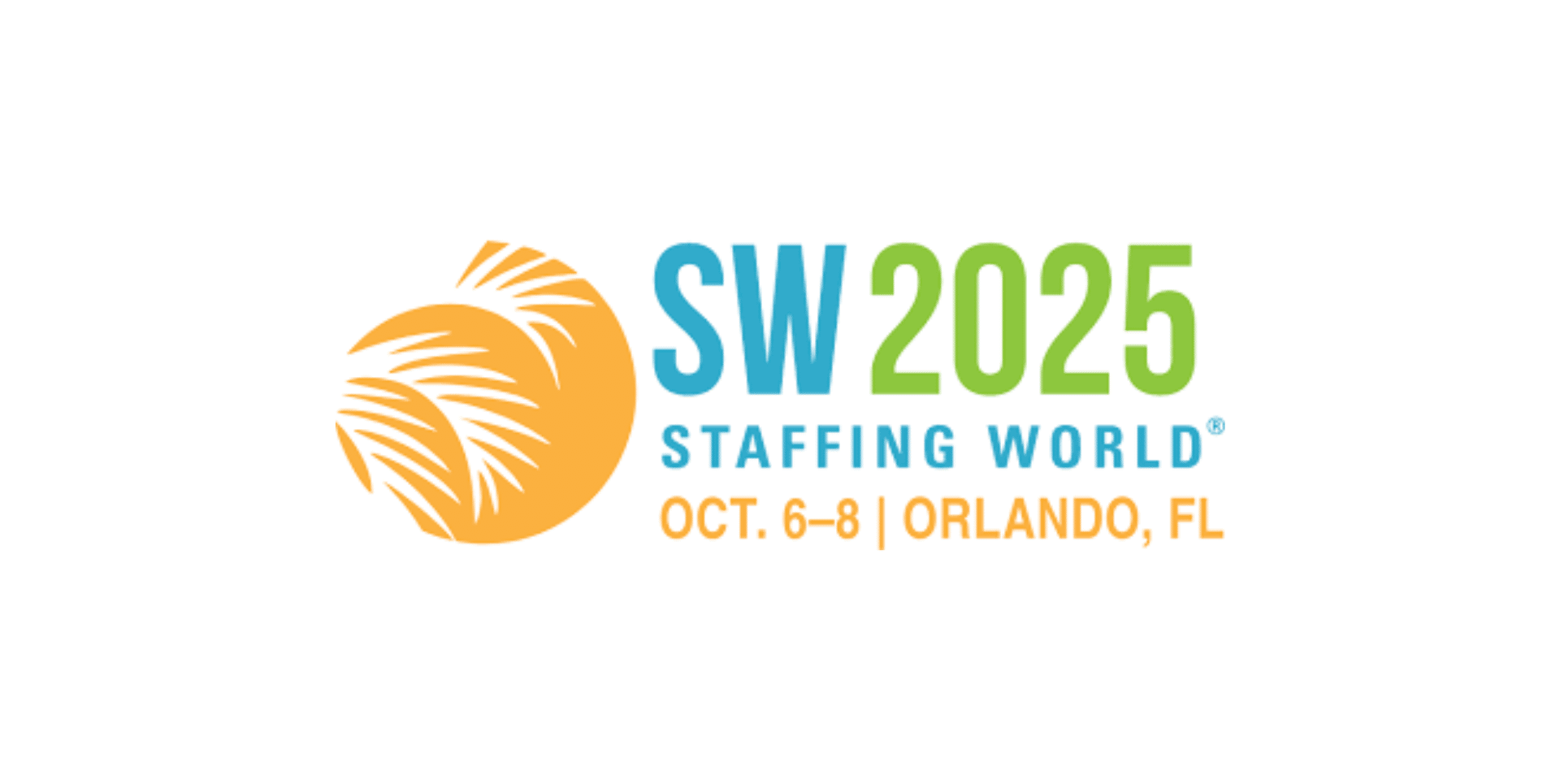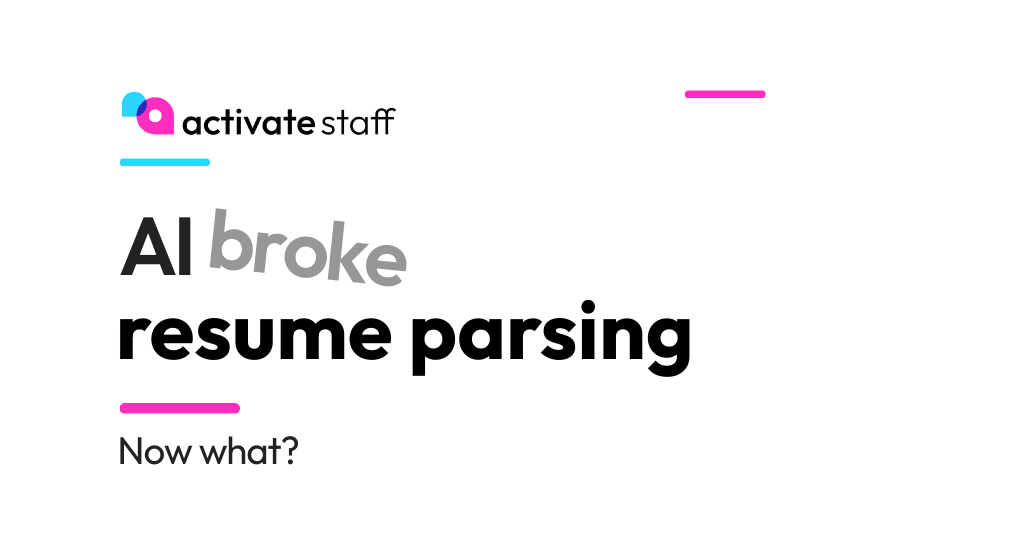In our latest episode of Staffing Buzz with Brooke, we join in the conversation with Matthew Dichter from Staffing Engine to discuss the transformative role of artificial intelligence (AI) in the staffing industry. They explore AI’s broad applications, from streamlining recruiter’s tasks to enhancing the candidate experience, while also discussing the challenges of bias and ethical considerations.
How is AI being used in the staffing industry today? Can you give some examples of successful implementations?
“In staffing and recruiting, there are a lot of different applications of AI. Companies like Dexter and TextRecruit are pretty early on with applying it to external candidate search and matching. There’s a great use case for AI matching, which involves looking at a lot of data across candidates and job orders to match the best possible candidates to the best jobs and vice versa. There are also examples like what Staffing Engine provides, which are AI digital assistants and chatbots that can help with instant qualification, prescreening, routing candidates, as well as client leads to the appropriate individuals or teams.”

Algorithmic job matching is a game changer for ActivateStaff clients. Candidates enter their own preferences when they sign up (a < 3 minute process that captures their skills, availability, location and preferences). This information is then used to surface a personalized feed of jobs on their app, saving agencies hours in their matching process.
What are the benefits of using AI in staffing?
“The benefits of using AI in staffing are making recruiters more productive and profitable while also enriching the candidate and client experience. AI can automate mundane and repetitive tasks, freeing up recruiters to have more conversations and focus on relationship building. It can also provide instant gratification to candidates, help with the deflection of frequently asked questions, and ensure quick response times.”
Are there any challenges associated with implementing AI in this industry?
“One challenge is that some solutions in the industry claim to be AI but are actually scripted decision tree models. Another challenge is reducing bias in AI training data and ensuring unbiased implementations.”
How can AI be used to improve the candidate experience during the candidate journey from attraction to retention to redeployment?
“When candidates land on a staffing agency’s website, AI-powered chatbots can greet them, understand their needs, and guide them to the right information or live human interaction. AI can also be leveraged to improve the post-hire worker experience, assisting with questions about credentials, time cards, pay stubs, and more. By using AI throughout the candidate journey, agencies can provide a seamless and personalized experience, leading to higher retention rates and increased chances of redeploying candidates.”
What are the ethical considerations surrounding the use of AI in staffing, and how are companies ensuring that their use of AI is fair and unbiased?
“There are several ethical considerations when it comes to using AI in staffing. One example is the proper use of sensitive data. Agencies need to educate their recruiters on how to prompt AI tools without inputting sensitive data that shouldn’t be outside of the database. Another consideration is reducing bias in AI. While machines should inherently have less bias, the training data and human input can introduce biases. Companies are mindful of these concerns and actively seeking ways to ensure fair and unbiased AI implementations. Some companies restrict or ban AI usage until more information and best practices are established.”
Many people are scared of losing their jobs to AI. You and I know there will still be a place for recruiters, but how might this change their roles? What do recruiters need to be thinking about?
“Recruiters don’t need to be overly concerned about losing their jobs, but it’s important for them to recognize the role that AI will play in the industry. Recruiters who understand how to leverage AI and integrate it into their workflow will become more productive and efficient. AI can assist with tasks like personalized emails, crafting job descriptions, resumes and generating candidate submittals. Recruiters need to embrace AI as a critical skill set to stay competitive and provide a higher level of service to candidates and clients.”
ChatGPT is on everyone’s minds. Any specific things you’ve seen with this tool in staffing?
“We’re already seeing agencies using ChatGPT to write job descriptions, personalize emails, assist with resumes and cover letters, and even automate candidate submittals. ChatGPT has the potential to streamline workflows and automate time-consuming tasks for recruiters. As the technology continues to improve, we can expect even more innovative use cases and applications in staffing.”




